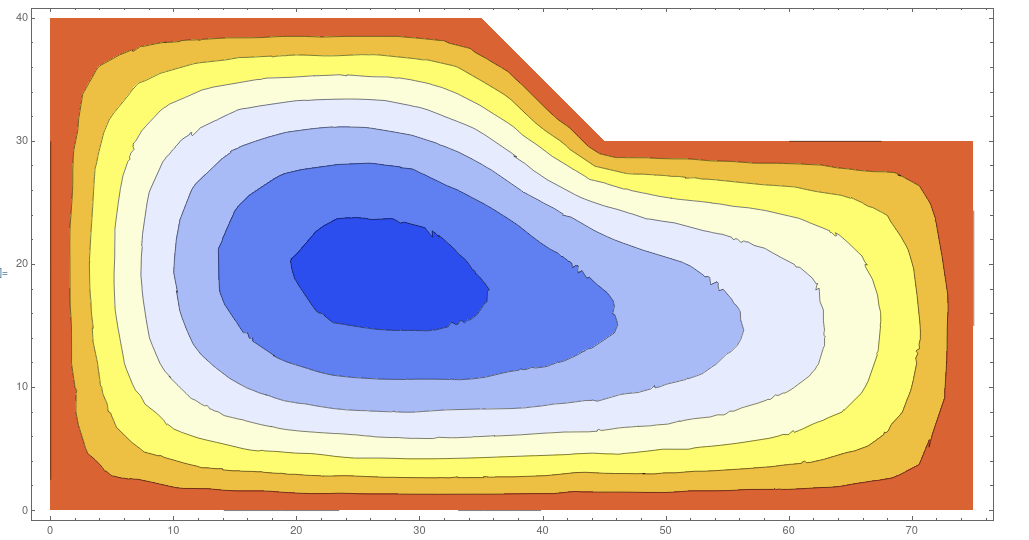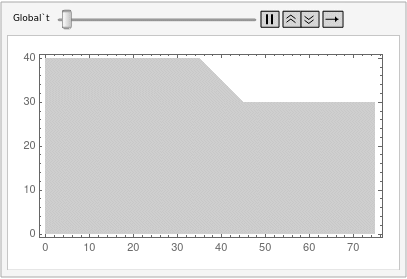I can solve the following stationary Darcy problem:
$div(\nabla u)=1$ with $ u = 0 \in \Gamma_d$
<< NDSolve`FEM`
x0 = 40;
y0 = 30;
r = 30;
p = Polygon[{{0, 0}, {75, 0}, {75, 30}, {45, 30}, {35, 40}, {0,
40}}];
m = ToElementMesh[p, "MeshOrder" -> 1, MaxCellMeasure -> 10 ];
usol = NDSolve[{ Laplacian[u[ x, y], {x, y}] == 1,
DirichletCondition[u[x, y] == 0, True] },
u, {x, y} \[Element] m];
ContourPlot[Evaluate[u[ x, y] /. usol], {x, y} \[Element] m,
ColorFunction -> "Temperature", AspectRatio -> Automatic]
But I can't solve the following transient problem
$\frac{\partial u}{\partial t} + div(\nabla u)=t$ with $ u = 0 \in \Gamma_d$
usol = NDSolve[{D[u[t, x, y], t] - Laplacian[u[t, x, y], {x, y}] == t,
DirichletCondition[u[t, x, 0] == 0, True], u[0, x, y] == 0},
u, {t, 0, 1}, {x, y} \[Element] m];
ContourPlot[Evaluate[u[0.1, x, y] /. usol], {x, y} \[Element] m,
ColorFunction -> "Temperature", AspectRatio -> Automatic]
Can anyone help?



DirichletCondition[u[t, x, 0] == 0, True]. Probably only the boundary of m is of interest, no time dependency! $\endgroup$